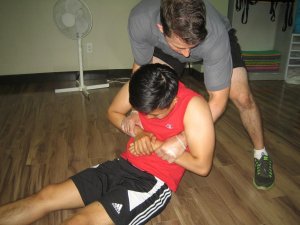
Ricin poisoning is a rare but fatal occurrence. Ricin is a powerful poison that comes from waste mash leftovers of processed castor beans (Ricinus communis), which are processed all over the world. Ricin is not temperature sensitive as it can withstand extremely cold or extremely hot temperatures and remain as an active poison. Currently, there is research on the potential use of ricin for bone marrow transplants and cancer treatments.
Recently, ricin as poison made news when its powder form was allegedly present in letters addressed to President Barack Obama. Aside from powder, ricin can also be found in mist, pellet or liquid form when dissolved in water or weak acids. A victim of ricin poisoning cannot spread the poison to another person. It is not contagious, however, if traces of the poison remain in an object, ricin poisoning may occur. When ricin enters the cells, protein production is stopped, affecting multiple organs.
How does Ricin Poisoning Occur in the Body?
Accidental exposure to ricin does not typically occur. Ricin poisoning is usually a deliberate act done for various reasons. The poison cannot be absorbed by the skin, however, there are several other methods where ricin poisoning can occur, these include:
- Inhalation of mist or powder
- Ingestion of ricin-contaminated food or water
- Injection of ricin pellets or ricin dissolved in liquids.
What are the Symptoms of Ricin Poisoning?
Depending on the route of exposure, as little as 500 micrograms (as minute as a grain of salt) is enough to be very fatal if inhaled or injected. It would generally take a larger amount of ricin to be fatal to adults if ingested. The following symptoms are usually observed in cases of ricin poisoning:
- Inhalation (within eight hours) – usually occur in multiple people
- Coughing
- Nausea
- Shortness of breath
- Fever
- Excessive sweating
- Low blood pressure
- Respiratory failure, which may eventually lead to death
- Ingestion (within six hours)
- Abdominal cramps and vomiting
- Bloody diarrhoea
- Blood in urine
- Hallucinations
- Seizures
- Dehydration
- Organ failure, which may eventually lead to death
- Injection
- Swelling and pain in the muscles and lymph nodes
- Multiple organ failure, which may eventually lead to death
How is First Aid Administered in Cases of Ricin Poisoning?
There is no antidote for ricin. The treatment for ricin will likely require emergency medical services. However, give first aid as immediately as it may help reduce complications and even save a life.
- Remove the ricin from the body as soon as possible. If it is in the clothing, remove the clothes and place inside a plastic bag. If it is present in the area, leave the area and get fresh air.
- Wash any ricin from the skin with soap and water. If ricin entered the eye, flush the eye with copious amounts of water.
- Do not touch any possibly contaminated object.
- Do not induce vomiting for cases of ingested ricin.
Disclaimer: This information in this article should not be used for medical diagnosis and advice. To learn how to treat ricin poisoning and other cases of poisons, enrol in First Aid Courses.
